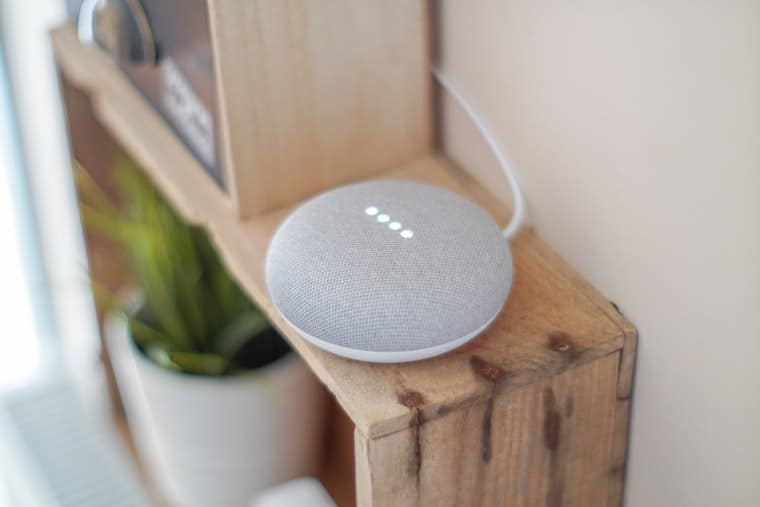Google hires people to listen to recordings and conversations of users of the tech company's smart home devices and applications, with some of those recordings collected without users' consent, according to reports by VRT on Wednesday.
An anonymous subcontractor of the global tech giant gave the Flemish news site access to over a thousand conversations recorded via the Google Home smart speakers or the Google Assistant smartphone app — out of which 153 were recorded unbeknownst to the user.
That external employee was one of many hired by Google worldwide, including in Belgium, to listen back and analyze a series of recordings captured and stored by the smart assistants on Crowdsource, a platform on which anyone can help improve the company's algorithms by describing images, audio snippets, videos...
Recordings captured by the smart devices are kept in a "hidden" area of the platform accessible only to authorised personnel, according to the outlet. The employee's job is to "process" the recordings in order to help improve the device's understanding of the intricacies of the human language.
"Employees must listen carefully to describe the fragment as well as possible," the outlet writes, adding that the subcontractors are asked to describe the snipped in detail: "Can you hear a female voice, or a male voice. Is it a child? What is being said? Every cough and audible comma is written out."
'That is unquestionably my own voice'
The audio fragments captured and stored by the appliances are reportedly stripped of all information which may help the employee's listening back on them to identify the persons behind them. User names and other information are stripped out of the audio files.
But a crucial part of the employee's tasks is to help the devices make out words that it was not able to understand or process by itself, meaning "employees who listen must search every word, address, name or company name" for which the spelling is uncertain, potentially facilitating the task of completely or partially identifying the person speaking.
Some fragments that VRT listened to allowed the outlet to find and track down the users and pay them a visit in their own homes to playback the recordings for them.
"That is unquestionably my own voice," one Flanders resident said upon listening to an audio fragment, while a couple in the town of Waasmunster said they "immediately" recognised the voices of their children and grandchildren.
Hearing problems
Most of the audio snippets the Dutch-language news site examined stemmed from users' direct interaction with the smart appliances, resulting from the specific vocal command "Ok Google."
According to the outlet, the smart speaker's small print states that the recording and storing of these audio fragments is an option turned on by default — but that the fine print does not say that people will listen back on them.
But this includes only the voice recordings that are captured after the user pronounces the command "Ok Google," yet the VRT said over a hundred fragments it was given access to were recorded unknowingly, because the smart appliances are activated by any word that "sounds like Google," or whenever the user "accidentally pushes a button" or "unknowingly gives a command."
The thousands of conversations analyzed by the outlet included bedroom conversations, conversations between parents and children but also "banging arguments" and "business phone conversations with a lot of confidential information."
High tech trumps privacy
The findings of the Flemish outlet follow reports by Bloomberg in April that Amazon employees were also reviewing conversations and recordings stored by the company's own smart home assistant, Alexa.
Like Google's subcontractors, Amazon's clock in the world over to listen to thousands of different recordings and conversations as a way to improve the companies' smart appliances and beef up their algorithms, the key to their success.
In the case of Google, the company has published a series of videos aiming to fight back against concerns that it was eavesdropping.
Contacted by VRT about the recordings it obtained, the company acknowledged that it reviewed fragments to improve its technology but that it concerned only a small number of clips, which make up "only 0.2% of all audio clips."
The company further stated that the work carried out by its subcontractors was "crucial for the development of technology that makes products such as the Google Assistant possible," raising the question which has plagued Google, Facebook and the world's other tech giants since they first rolled-out their high-performing products: how far can technology overstep the boundaries of privacy?
Gabriela Galindo
The Brussels Times

